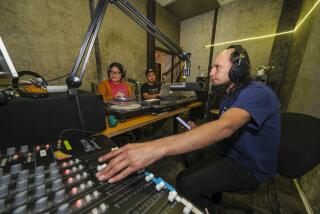‘Pressure on Nicaragua’
- Share via
Everyone must be familiar with the parable of the shepherd who cried “wolf, wolf” when there was no wolf so that when a wolf did appear, the people paid him no heed thinking it again a false alarm.
We, unfortunately, suffer from this wolf-wolf syndrome. Those responsible for defending our borders seem unable to resist shouting, “Enemies at our borders. Enemies at our borders.” We heard it with Cuba. We heard it with Vietnam. We heard it recently with El Salvador. Now we are hearing it with Nicaragua. We must aid the contras to overthrow the elected government or the Nicaraguans will first subvert Mexico and then enter the United States.
This is the rather hysterical conclusion of Singlaub. One feels inclined to tell the general, as the sergeant told his commanding officer, “Sir, you are seldom right, but this time you’re wrong.”
Singlaub drafts into service all the tired and shopworn fear phrases: communism, Soviet bases in America, control of sea lanes, illegal immigrants flooding our borders, terrorism.
The general, like so many fearmongers, is more interested in communism than in democracy. He patently believes in the military democracy where bullets, not ballots, are counted.
The military command in Panama will gladly brief anyone who will listen. And their thesis is that the military is the only stabilizing influence in Latin America. Therefore, the United States must support the military establishment in all Latin American countries, and American military aid is of primary importance. They firmly believe this, all evidence to the contrary.
In Honduras, for example, the American business community reported without qualification that Honduras would be economically viable except for the military presence, a destabilizing influence. The only stable country in Central America is Costa Rica, which has no army.
In 1962 there was great excitement in Honduras. The fall elections that year would provide the first ever change of government by elective process. The American aid program had concentrated its efforts for nearly four years on education so that clerks could be trained, farm cooperatives organized, uniOns established. Little progress could be initiated in advance of education. One month before elections were to be held, the military moved in with the usual coup. Not only was the first democratic election frustrated by the military, all the work of the aid program was negated. As usual with military coups, everyone was fired, kicked out of office, down to janitors. Room had to be made for relatives, friends, and followers of the junta. All the training and educating, all the millions of American aid were lost.
DAVID B. WHARTON
Ojai
More to Read
Sign up for Essential California
The most important California stories and recommendations in your inbox every morning.
You may occasionally receive promotional content from the Los Angeles Times.









